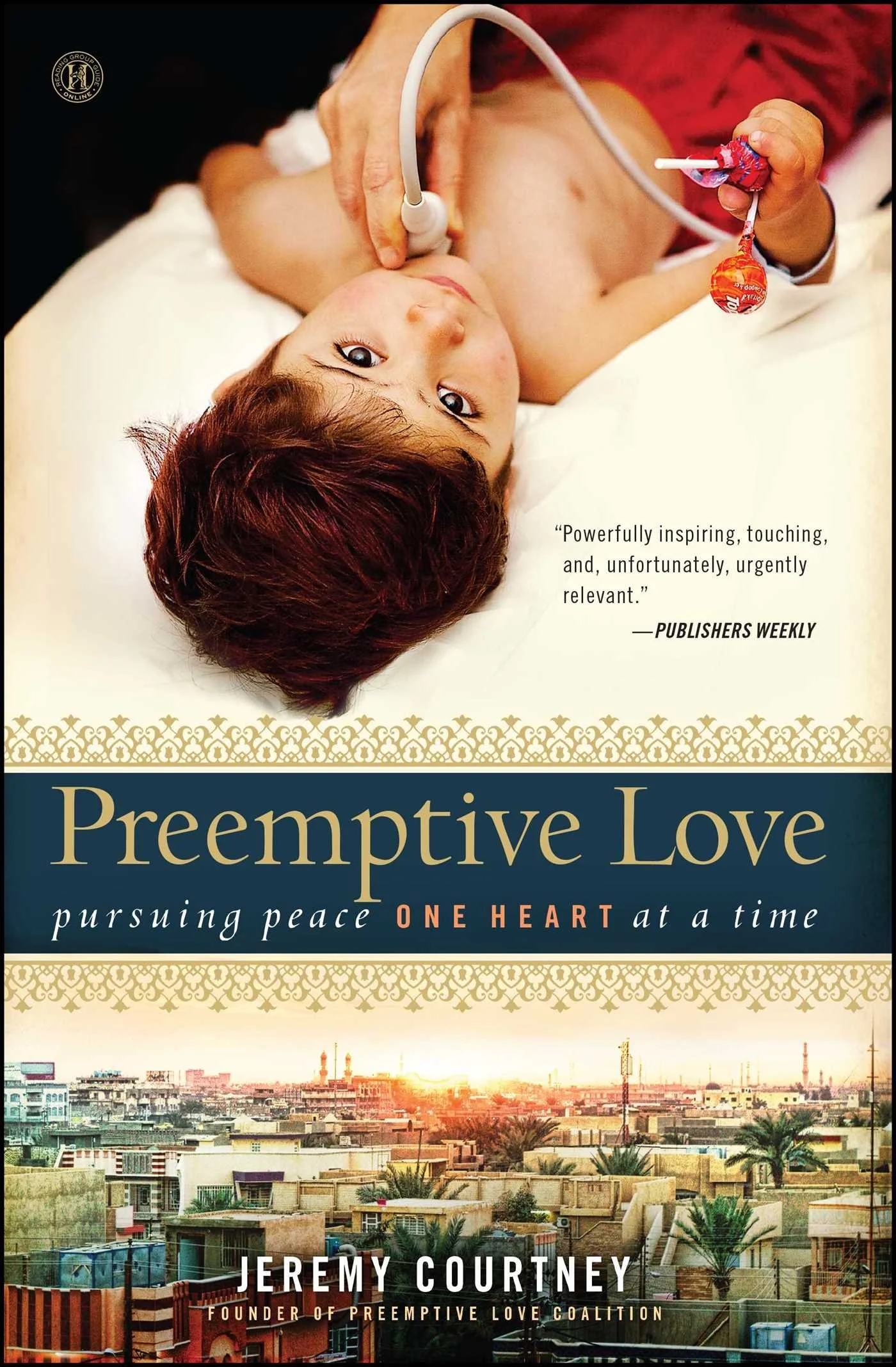Preemptive Love
When we read the headlines and watch news clips from the Middle East, it’s overwhelming to consider the hardship of daily life for so many, not to mention the dizzying complexity of geopolitical dynamics. When you factor in language, religion, geography, and cultural barriers, it’s no wonder most of us opt to keep that part of the world on the periphery of our minds.
That’s why I so admire what Jeremy Courtney and his colleagues at the Preemptive Love Coalition are up to in Iraq. After decades of war, Iraq has a backlog of children with life-threatening heart defects. Some of these medical conditions have been caused by malnutrition, but many others are the result of chemical weapons. The backlog is exacerbated by the country’s crippled infrastructure and destroyed healthcare system, further casualties of war that make life especially difficult for those who are poor and who live in remote parts of the country. In this context, the Preemptive Love Coalition provides life-saving heart surgeries to children in need, often bridging long-held ethnic and religious divides in the process.
Preemptive Love: Pursuing Peace One Heart at a Time chronicles the journey Courtney has been on, along with his family and coworkers, to “love first and ask questions later.” Given the gravity of the problems Courtney and his team face every day, I was blown away by how inspiring the book really is. It’s not depressing at all, but neither is it detached from reality.
In addition to describing the coalition’s many achievements, it is refreshing and commendable that Courtney deals truthfully with his own failures—personal, relational, and organizational—and provides an honest account of the reality of life for those the coalition is seeking to serve. Also, by rendering ordinary Iraqis and Kurds, as well as Turkish and Israeli surgeons, as the real heroes of the story, he avoids feeding into the “white savior complex.” Courtney describes the long, slow work of gaining credibility and trust in a culture that has every reason to distrust outsiders, while receiving warm hospitality at each step along the way, despite fatwas and death threats from some in high places.
Courtney tells these stories in riveting fashion, and he succeeded at keeping me on the edge of my seat, but the book’s greatest contribution may well be its humanizing effect. Geopolitics, war, extreme poverty, and child mortality are scary, insidious realities, and Courtney touches on them all. But his focus remained unswervingly on specific people, like Mahdi, Khadeeja, and Danar. Iraq may be a foreign place for most of us, but Courtney’s weaving of whimsy and heartbreak on these pages truly humanizes the book’s subjects. That’s no small thing.
Another aspect of the book that struck me was his honest portrayal of the messiness of relationships, particularly in the context of a people-focused humanitarian organization in an especially volatile part of the world. While it is good to due diligence in deciding which nonprofits to support (which ought to go beyond questions of overhead, by the way), a book like this should give the armchair quarterbacks among us pause when it comes to passing judgment on nonprofits. Until one has walked a mile in someone’s shoes—deciphering fatwas, negotiating among adversaries, balancing budgets, hiring staff, cutting through red tape, experiencing betrayal, rebuilding trust—one should be careful when passing judgments. I consider that a reminder to myself, as one who writes about justice and development issues from a place not called Baghdad or Goma or Mogadishu.
What makes the story of the Preemptive Love Coalition so inspiring, in my view, is precisely what might make it more vulnerable and “less impressive” than other big NGOs. It’s the coalition’s commitment to relationships and reconciliation, while serving one child at a time.
Read this book to challenge your stereotypes of Iraq, Islam, and the Middle East more broadly. Read it to learn about Kurds. Read it for the sheer pleasure of Courtney’s stunning prose. Read it to be inspired by the notion that preemptive love is possible. Read it to remember what matters. Whatever you do, just read it.
